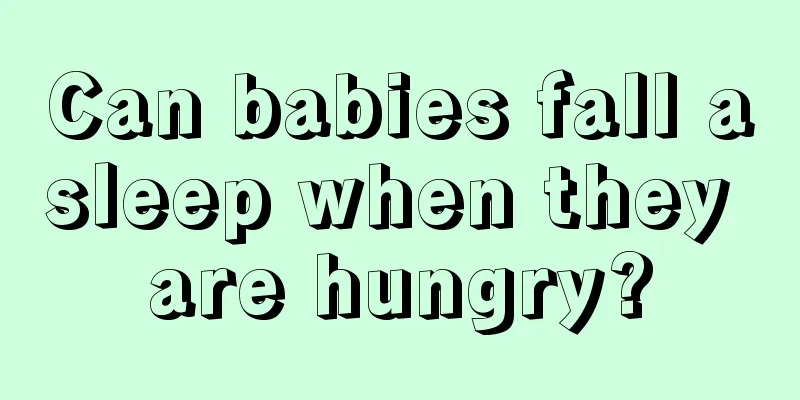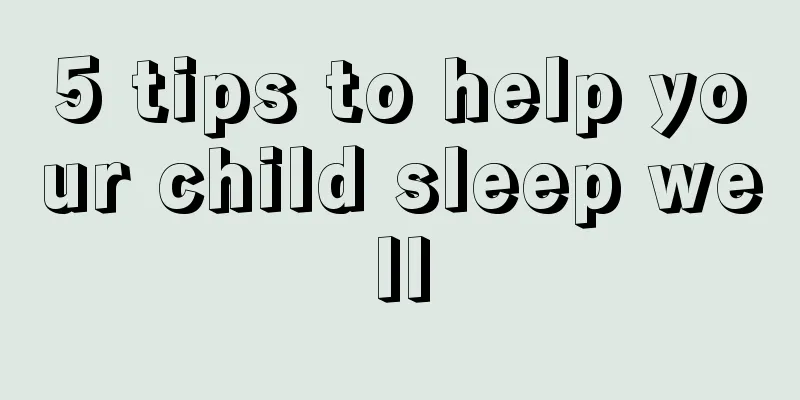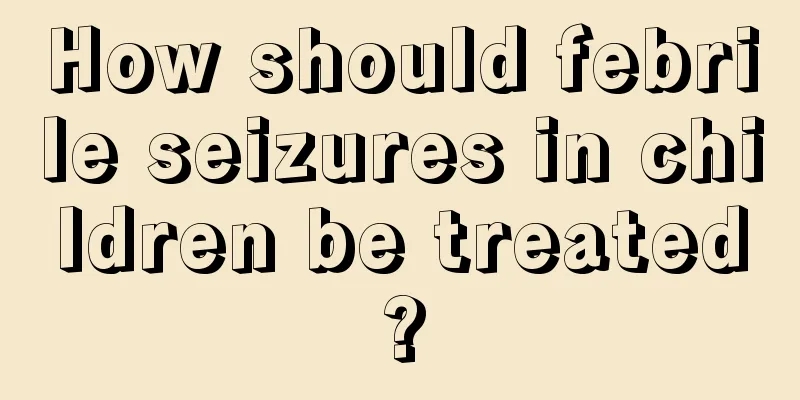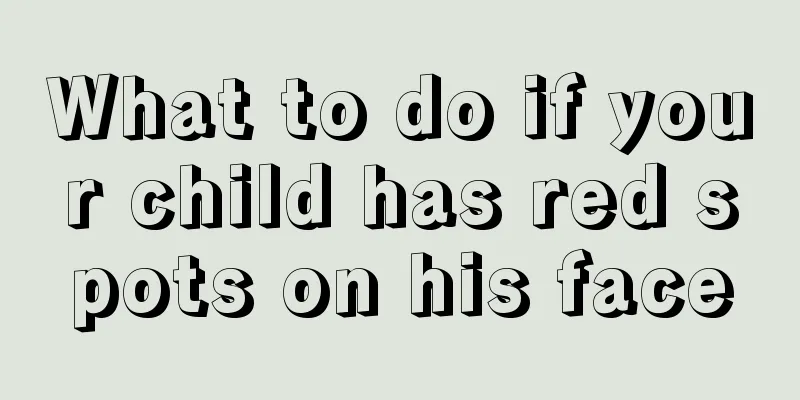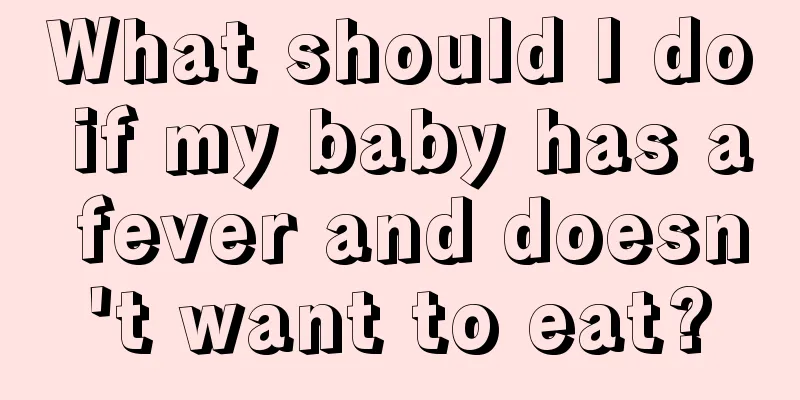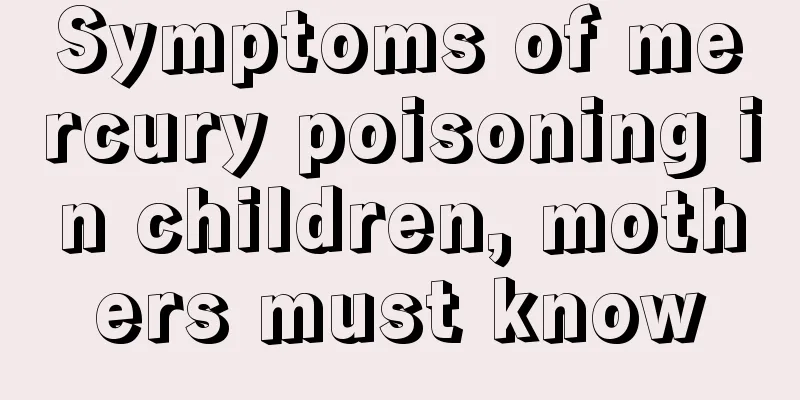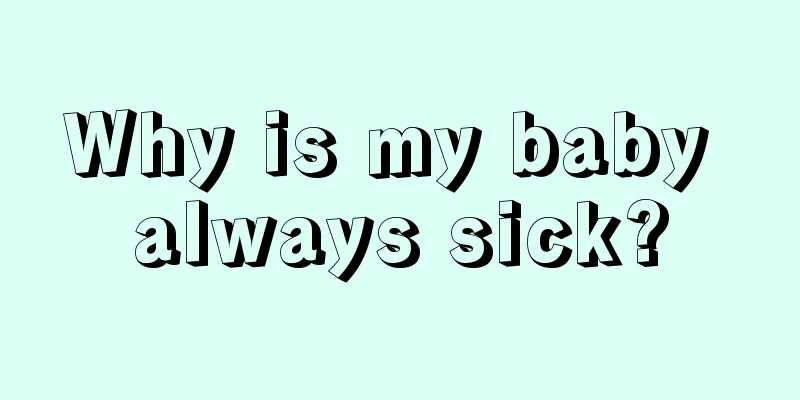Causes and treatment of fever and convulsions in children
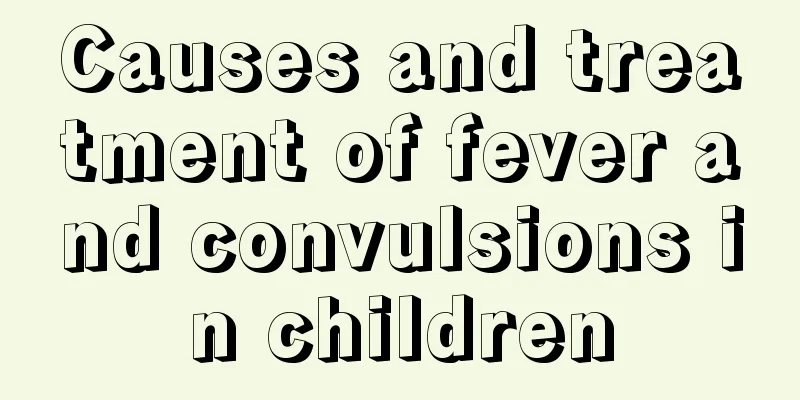
|
Children are very important to every family. Therefore, parents are also very concerned about their children's health. Children have relatively poor resistance, and all aspects of their bodies are not fully developed, making them susceptible to illness. Many parents may have found that their children have convulsions when they have a fever. This symptom causes parents to be very worried. They feel sorry for their children and are also worried about whether their children have certain diseases. 1. Simple febrile convulsion. It is more common in children with good physique between 6 months and 3 years old. The convulsion is systemic and lasts for several seconds to several minutes, usually not more than 10 minutes. It only occurs once a day. The child wakes up quickly after the convulsion and becomes drowsy after regaining consciousness, but there is no abnormality in the nervous system. The EEG results within two weeks of the convulsion are normal. 2. Complex febrile seizures. It is more common in children under six months old or over 4 years old. They have multiple seizures in a day, lasting more than 15 minutes, and have more than 4 high fever convulsions. A few people have non-systemic seizures, but partial seizures (such as unilateral limb convulsions). After the attack, there are neurological abnormalities such as temporary paralysis. 3. Improve Immunity To prevent children from having fever and convulsions, we must first improve the baby's immunity. This can be done by strengthening nutrition and engaging in regular outdoor activities to strengthen the baby's physical fitness and improve resistance. If necessary, use some drugs to enhance immunity under the guidance of a doctor. 4. Secondly, prevent colds. When the weather changes, add or remove clothes as appropriate to avoid catching cold; try not to go to public places or places with a large number of mobile populations, such as supermarkets, stations, cinemas, etc., to avoid catching a cold; if an adult in the family has a cold, they need to wear a mask and have as little contact with the baby as possible; open windows for ventilation at irregular intervals every day to keep the air circulating in the home. 5. Timely treatment Parents should also detect their child’s fever as early as possible. Babies have fever frequently during infancy, so parents should pay more attention, especially to the night care of babies with fever, because most of the time, the baby's body temperature rises suddenly at night. |
<<: What are the precautions after the baby's umbilical cord falls off?
>>: How to cook rush for children to drink
Recommend
Why do children not like to eat?
As people's living conditions are getting bet...
How to measure the temperature correctly when the baby has a fever but is in good spirits
For babies, if the fever does not exceed 39 degre...
Can children's ADHD be cured?
There are some children who can never calm down. ...
What is the normal temperature of a baby's forehead?
The health of the baby is a very important basic ...
Treatment for 13-month-old baby who doesn't like to eat
The whole family loves the baby very much. After ...
C-type technique to control milk volume
As soon as the baby is born, mothers should breas...
What should I do if my child has heat rash?
It is a very common phenomenon for people to have...
Is the baby's stuffy nose a cold?
Babies have very special physiological characteri...
What to do if your child's scrotum is red and swollen
Children are prone to many diseases. When treatin...
What are the effects of cerebral palsy in children?
Cerebral palsy is a relatively serious childhood ...
How to strengthen your baby’s spleen and stomach?
Nowadays, scenes of parents chasing after their c...
Is it really good for babies to bathe with mugwort leaves?
Mugwort, also known as Artemisia argyi, is a medi...
How to treat precocious puberty?
Generally, children need a certain amount of nutr...
What's wrong with the pimples on the child's body?
Every child is the focus of the entire family, be...
Five common problems with using children's sunscreen
There are many types of children's sunscreen ...

